안녕하세요 Yoon 입니다.
오늘은 아들러 심리에 대해 소개하겠습니다.
(Today,
Let's learn about the Alfred Adler psychology.)
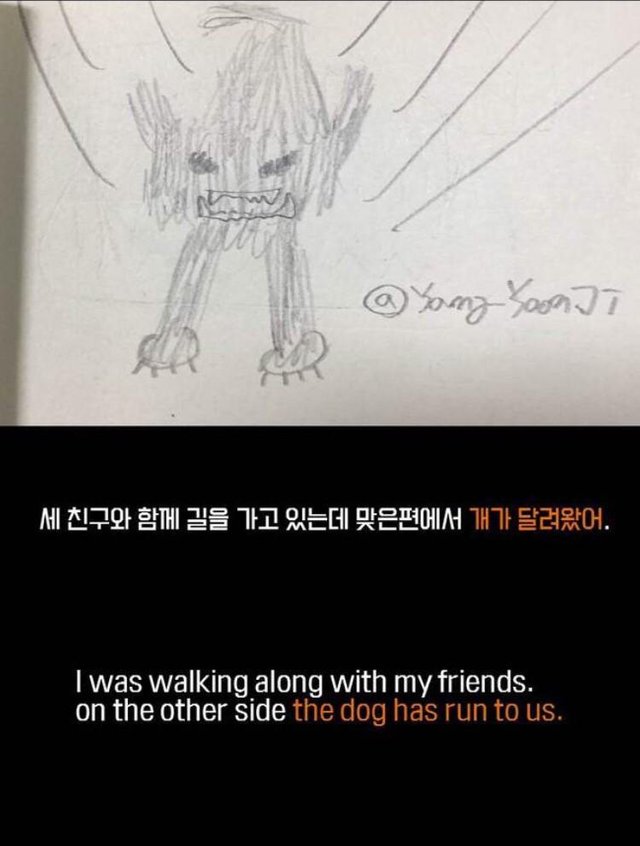
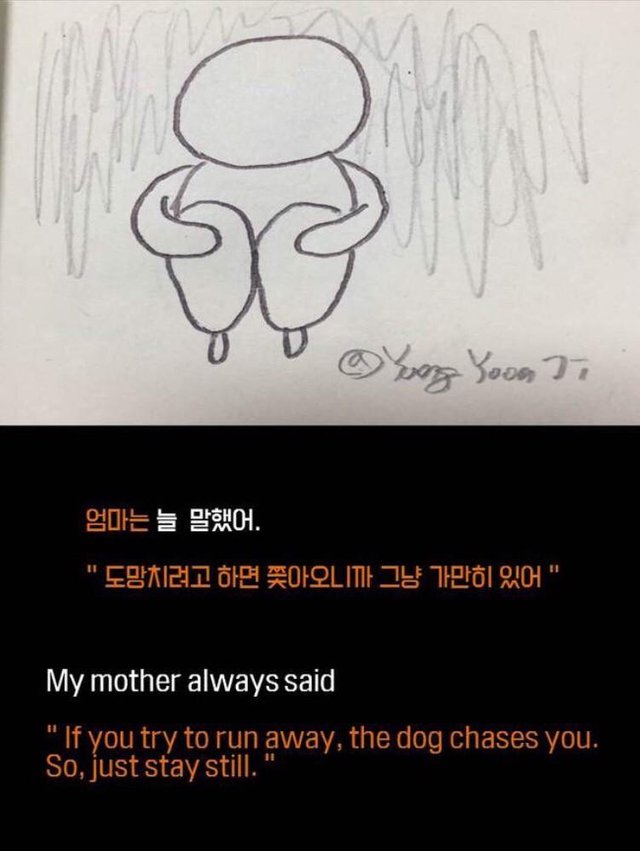
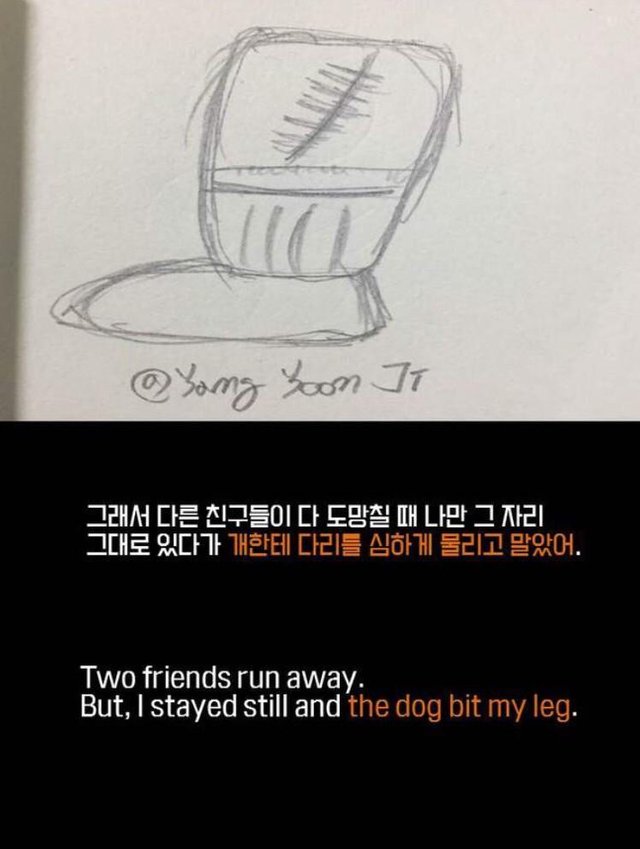
그리고 그의 기억은 끊어졌습니다.
(And his memory was cut off.)
그는 그 기억으로 인해
이 세계는 위험한 곳이라고 생각하게 됐습니다.
(After that, he thought this world was a
dangerous place.)
하지만 시간이 흘러 그는
'이 세계는 그렇게 무서운 곳이 아니다.
주위에는 무서운 사람만 있는 것이 아니고 친구도 있다.'
고 생각할 수 있게 되었습니다.
(But over time, he thought this world is not such
a horrible place and there is not only a scary
person around but also friends.)
그러자 잊었던 기억이 떠올랐습니다.
(Then he remembered the memories
he had forgotten.)
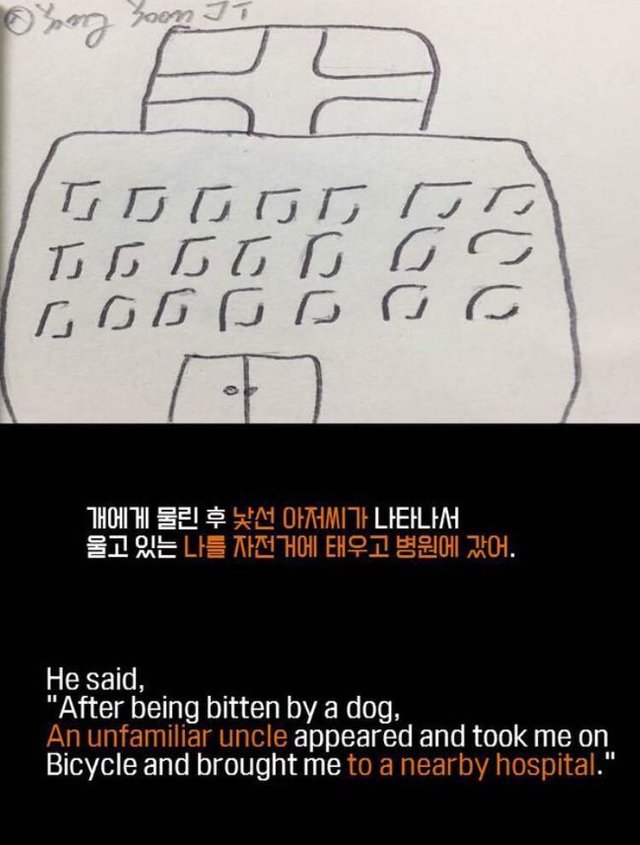
과거의 일을 떠올리는 사람의 "지금"이 달라지면
그에 따라 과거 역시 달라집니다.
**어떻게 하면 "지금"이 달라질까요?** (How will my "present" be different?)
>**원인이 중요한 사람? 목적이 중요한 사람?** (person whose cause is important? or person whose purpose is impertant?)
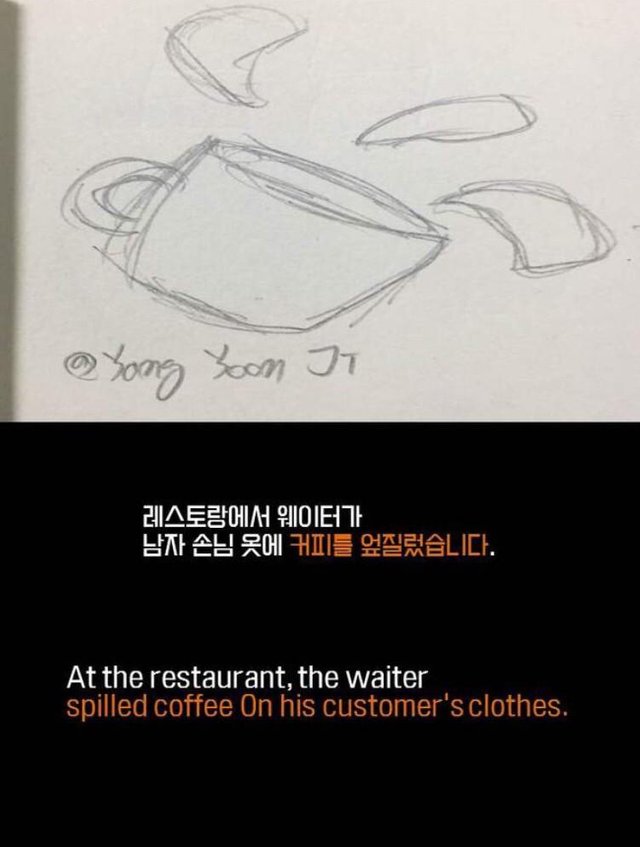
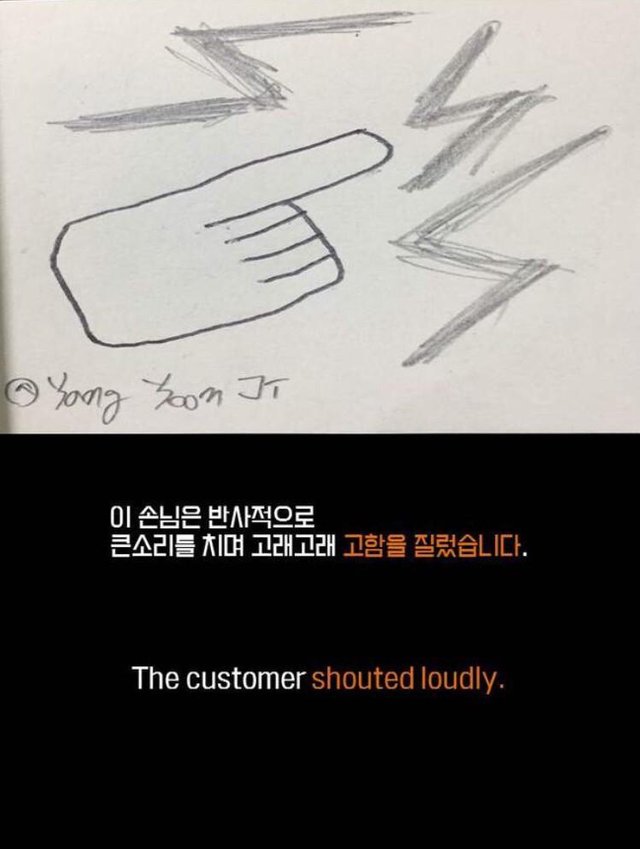
이 경우는 옷에 커피가 쏟아져서 화가 나 큰소리를 쳤다고,
커피가 쏟아져 화가 치민 것이 큰소리를 친
원인이라고 생각할 수 있습니다.
(In this case, you might think that the cause of
the loud voice is that the coffee.)
만약, 회사 사장이나 좋아하는 이성이 자신에게
실수로 커피를 쏟았다면 큰소리를 쳤을까요?
(If the president of the company or his favorite
person poured coffee on him by mistake,
would he have made a loud voice?)
큰소리치는 대신에
"괜찮습니다"
라고 웃으며 대답했을지도 모릅니다.
(instead of shouting,
"It's okay."
he mights have laughed.)
**아들러의 심리학에서는 분노라는 감정이 원인이 되어
큰소리를 친 것이 아니라 '큰소리를 치기 위해 화를 냈다.'
고 생각 합니다.**
나아가 이때 큰 소리를 친 것도
'웨이터에게 사과를 받고 싶다.' 또는 '세탁비를 받고 싶다'는
목적이 있기 때문이라고 봅니다.
(In psychology mean it was angry because he
wanted to scream. Ath this point, he want to
accept for waiter apologize or to get the
money for the laundry.)
대개 사람 행동에는 목적이 있기에
어떠한 실천을 한다고 보는 것이죠.
(In psychology mean that person behavior is
what they do because they have purpose.)
다시 개에게 상처 입어 세계는 위험함 곳이라고
생각하게 된 그의 이야기를 해보겠습니다.
(Let's talk about that again.)
그는 개에게 물린 것이 세계가 위험한 곳이라고 생각하게
된 원인이라고 말하고 싶었던 것으로 보입니다.
하지만, 목적론의 관점에서 말하자면,
그는 이 세계를 위험한 곳이라고 생각하기 위해 무수히
많은 과거의 기억 중에서 다름 아닌 개에게 물린 기억을
떠올린 것입니다.
(He seems to have wanted to say that the bite of
the dog was the cause that led the world to think
it was a dangerous place.
But, in order to think of this world as a
dangerous place, he recalled memories of a dog,
rather than the myriad of past memories.)
더 파고든다면, 다른 사람과 관계를 적극적으로
맺고 싶지 않다는 목적이 있기 때문이었습니다.
(This is because his do not want to be
active with others.)
결국, 나의 "지금"을 바꾸려면 내 행동의 목적이
무엇인지 거짓없이 받아들이는 것이 우선입니다.
(to change my present, it is essential
that I accept the purpose of my actions
without lying.)
그러면,
"나는 변하고 싶은데 변하지 않습니다.
여기에 목적은 무엇일까요?"
라고 생각하는 분도 있을 것입니다.
(Then,
"I want to change present but I don't change.
Why is that?"
Some people might think about it.)
아들러 심리학에서는 변할 수 없는 것이 아니라
"지금 상황을 유지하는 게" 편하기 때문에
변하고 싶지 않다고 말합니다.
"하면 할 수 있다"는 가능성 속에서 살고 싶기
때문이라고 말합니다. 또한 현실적인 노력을 했다가
바라는 결과가 나오지 않을 까 봐 두렵기 때문이라고
말합니다.
(In psychology is that is doesn't want to change
because it's comfortable maintaining the present
and it means that I want to live in the possibility
that I can do it and It means that you are
afraid that you will not get the results you desire.)
**이처럼, 모든 것에는 목적이 있다는 아들러의 심리.**
(Everthing has its purpose.)
**당신 행동에 담긴 목적이 무엇인가요?**
(What is the purpose of your action?)
그리고 당신의 목표는 무엇인가요?
(What is your goal?)
여러분의 목표에 수 많은 미사여구가 붙지 않기를
응원합니다.
(I hope and encourage you to avoid
numerous excuses for your goals.)
책 '아무것도 하지 않으면 아무일도 일어나지 않는다' 참조했습니다.
좀 색다른 해석 방식이군요, 잘읽었습니다.
Downvoting a post can decrease pending rewards and make it less visible. Common reasons:
Submit
이 책 읽어보셨나요? ㅠㅠ 전 이 책 이해하기가 조금 어렵더군요 ㅠㅠ 책을 오랜만에 봐서 그런지ㅠㅠ 댓글 감사합니다!
Downvoting a post can decrease pending rewards and make it less visible. Common reasons:
Submit